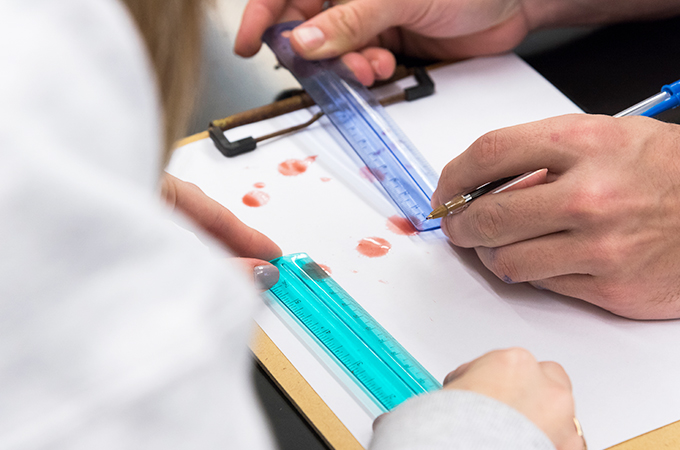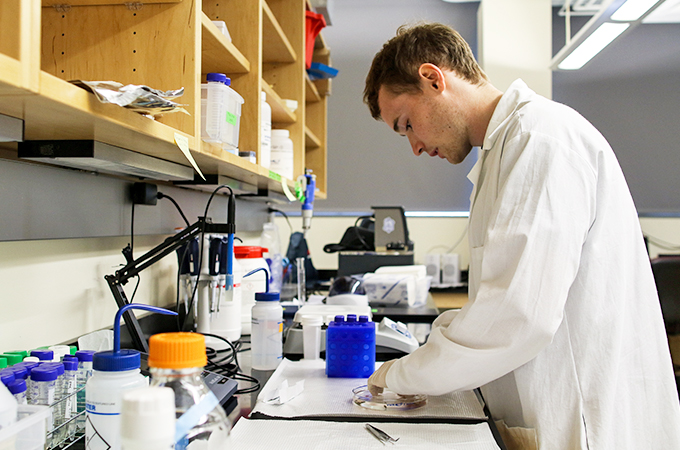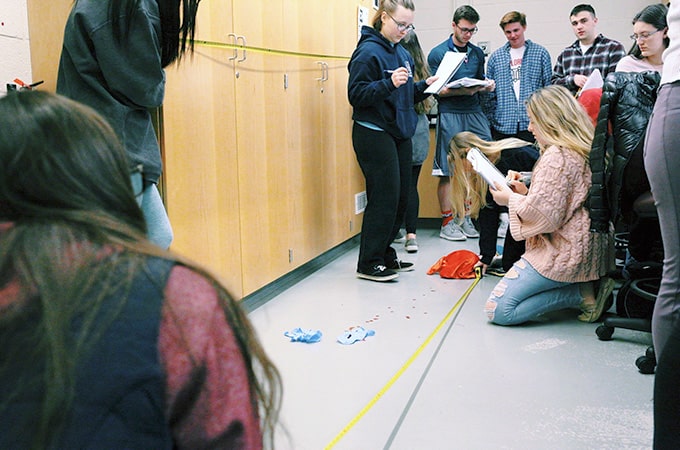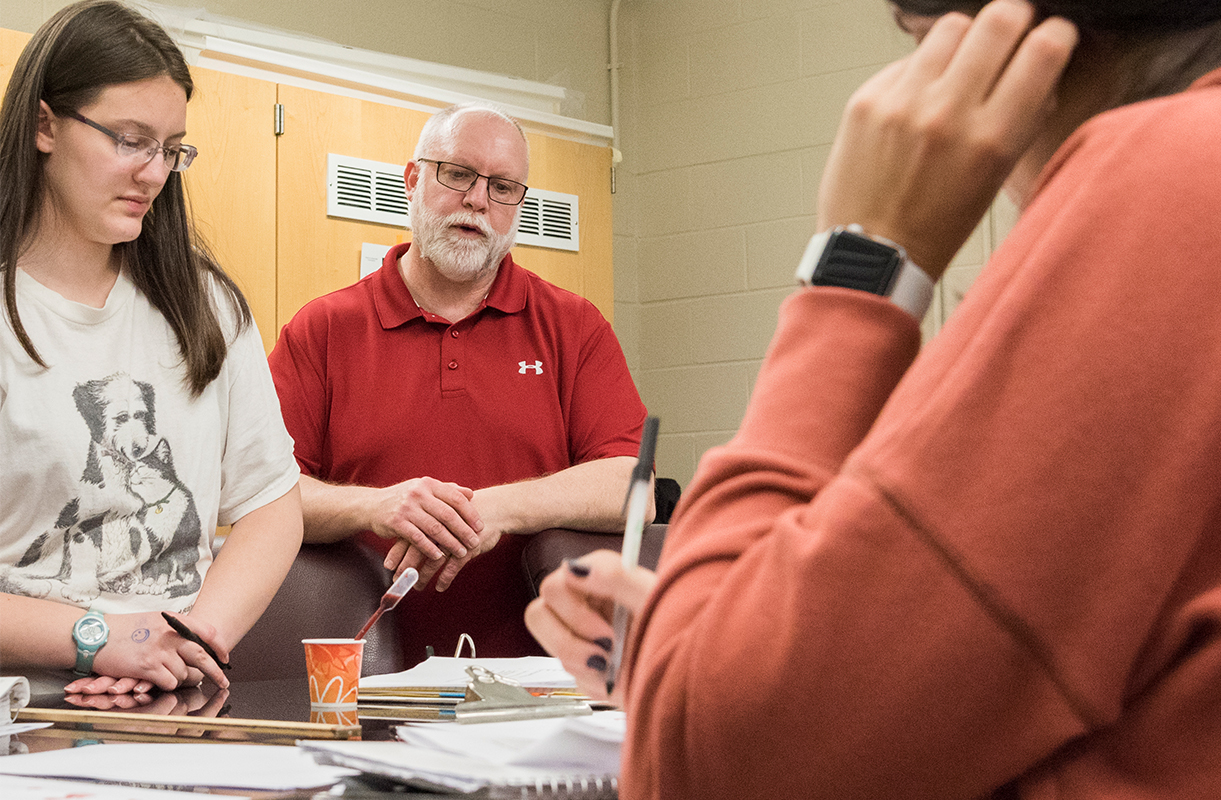Exploring Forensic Science 101: Introduction to Forensic Science
Learn about the field of forensics and acquire the lab techniques needed to conduct crime scene investigations
Chris Goodson, Forensic Science Major & Bridget Ahrens, Writing/Political Science Double Major
Forensic Science encompasses the wide array of academic disciplines that apply specific knowledge, techniques, and technology to the investigation of crimes and to the law.
Loyola’s program is distinctive as it takes a truly interdisciplinary approach. The Forensic Science curriculum encompasses 17 departments of academic focus—the most of any program in the country. Students engage with subjects ranging from biology to philosophy to engineering and take courses such as forensic entomology, security ethics, and business intelligence and data mining.
This course is engaging and fun. It brings out the Sherlock Holmes in every student. My favorite aspect of Intro. to Forensics is how hands-on it is. It makes me feel like I am at a real crime scene gathering the necessary evidence for an investigation.
This 100-level course is designed as a broad survey to introduce students to the different branches and disciplines within the field, including forensic psychiatry and psychology, DNA analytics, and forensic entomology.
Forensic Science Students Explore:
- The role of the forensic scientist in the criminal justice system
- Various aspects of forensics, including ballistics, fingerprinting, and toxicology
- Crime scene investigation and reconstruction
- Eyewitness testimony and death investigation
- How to apply select analysis techniques to items of evidence, including trace evidence analysis, impression evidence analysis, arson, forensic serology, and DNA analysis
- Serial killer profiling
The biggest things I want students to take from this course are the critical thinking, observation, problem solving, and writing skills that are critical to the field of forensics. Scientific literacy is very important, so I emphasize writing and communication—skills that are exercised in individual and group work activities, just as they will be later in the workplace.
—Alan Thoms-Chelsey, Ph.D., professor

Analyzing the evidence
A closer look
The topics covered in this course apply the knowledge, techniques, and technology from the field of forensics to the investigation of crimes and the courts of law.
Gain extensive hands-on experience with forensic lab techniques

Gain exposure to several lab techniques that are utilized by forensic investigators today. Lab exercises include fiber analysis, shoe-print casting and identification, document forgery, fingerprint characterization, blood identification, typing, and spatter analysis, and forensic DNA fingerprinting.
Be challenged to think critically and undertake an independent study

The course offers a wide range of appeal and the opportunity to explore an area of interest more in depth through writing a short term paper on a forensics topic of the student's choosing.
Analyze a
crime scene

The midterm lab is a class favorite. Students analyze a simulated crime scene and must master the following skills: create a crime scene sketch that includes all the evidence; effectively describe that evidence and discuss preliminary lab and autopsy results; and compile a list of possible suspects with detailed motives and alibis.

This class doesn't just prepare students for careers in forensics, but for any career they choose, because they learn how to observe, interpret and articulate information, use higher-level thinking skills, and communicate a hypothesis effectively.
Learn more about the Forensic Science program at Loyola University Maryland